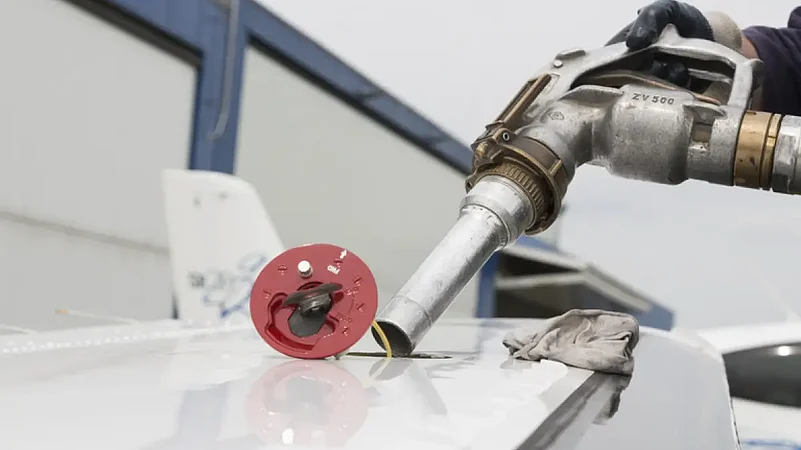Biting the consumers’ pocket once again, the aviation turbine fuel (ATF) prices witnessed a steep hike of 5.3 per cent on Monday. This is the 10th time that the ATF prices have been hiked this year. Jet fuel prices—which constitute 30 to 40 per cent of airlines’ operating costs, are revised on every 1st and 16th of the month. For the past nine months, the ATF prices have surged by Rs 49,017.8 per kilolitre (Rs 49 per litre), or nearly 55 per cent. According to a report by ICRA, the ATF prices have surged 93 per cent year-on-year in April. The development comes as the price of petrol and diesel have remained frozen since April 6 in the country.
Reasons Behind A Steep Hike In ATF Prices
While the energy prices in the international market and the supply-chain constraints due to the Russia-Ukraine war has been attributed to be amongst the leading cause of ATF price hike, experts believe that local taxation by different states also plays a significant role in ATF price hike.
Civil aviation minister Jyotiraditya Scindia, in August last year, had urged the 22 states and union territories to bring the value-added tax (VAT) on ATF within the range of one to four per cent across all airports.
Mark Martin, Founder and CEO of Martin Consulting said, “A single pricing method for ATF has been in discussion for a very long time. Not just taxation, but we need to rationalize and rectify all our tax structures, especially on jet fuel because that has a direct impact on inflation.”
Currently, Kerala, Andhra Pradesh, Karnataka, Meghalaya, Nagaland, Madhya Pradesh, Sikkim, and Telangana slashed the VAT to one per cent or even below one per cent.
Meanwhile, even as the crude oil prices touched $140 per barrel briefly earlier this year, the oil prices continue to trade above $100 per barrel. Moreover, a depreciating Rupee against the US dollar in the international market is also attributed to be the reason behind the hike in ATF prices.
Impact Across Industry
Martin said that a hike in fuel prices will have a profound impact across all industries. “The cost of travel, the cost of cargo, cost of freight trains, cost of couriers, cost of medical supply, and everything else will have a direct impact with such a steep hike in ATF prices,” he said.
“The cost of shipping of FMCG products, wheat, and grains, goes up because of an increase in the prices of fuel or petrol or diesel or jet fuel. The fuel price hike affects all industries. The cost of travel and the rise in inflation also get affected because the consumers have to pay for it,” he added.
India’s headline retail inflation touched an eight-year high at 7.79 per cent in April. This is the fourth time that the retail inflation remained higher than the Reserve Bank Of India’s expectation of below six per cent.
However, Martin believes that despite the ATF price hike, there will be a negligible impact on air travel, as consumers will have to pay out of their pocket for higher operating costs of the airlines. Willie Walsh, the head of the International Air Transport Association had earlier said that a surge in crude oil prices would be passed on to the passengers in the form of higher fares. Notably, Scindia had last week said that the curb on airfares will continue.
According to a report by ICRA, despite a continuous hike in ATF prices, the domestic air passenger traffic has grown by 59 per cent to 84-million in 2022 so far. However, this is 40 per cent lower than the pre-pandemic level. As per the report, domestic air travel surged by about 37 per cent to 10.6 million in March, compared to 7.7 million in February.
ATF Prices In Different Cities
According to the data available with the Indian Oil Corporation, ATF price in Kolkata is the highest at Rs 1,27,854.60 per kl, followed by that of Chennai at Rs 1,27,286 per kl. ATF prices in Mumbai are Rs 121,847.11 per Kl, whereas Delhi has the lowest ATF prices at Rs 123,039.71 per Kl.































